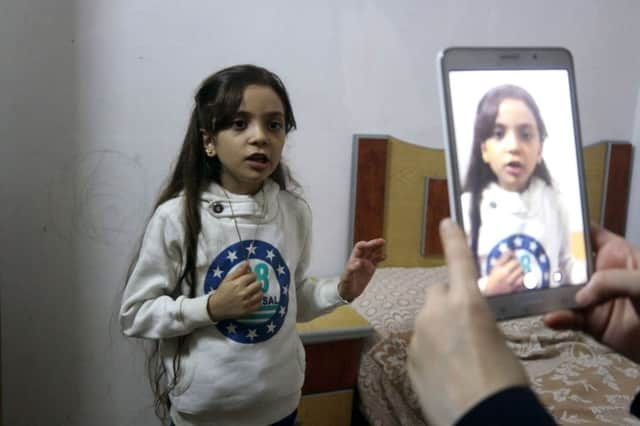Syria '˜forgotten' as citizen journalists silenced


Edinburgh-born Frances Guy (right), head of the Middle East region for charity Christian Aid, said the public is in danger of ignoring atrocities taking places in the country’s East Ghouta, where residents currently have severely restricted access to electricity, water, food and fuel.
While mainstream media coverage from Syria has been restricted since the beginning of the civil war – when the Syrian government banned non-authorised journalists from entering the country and foreign correspondent Marie Colvin and award-winning French photographer Rémi Ochlik were killed in Homs in 2012 – pictures tweeted by people living inside Aleppo while the city was under siege late last year captured the world’s attention.
Advertisement
Hide AdAdvertisement
Hide AdBut as fewer Syrians have been able to report the difficulties as the war continues, Guy warned that the western world is beginning to forget that the six-year-long conflict is ongoing, leaving hundreds of thousands of people living in limbo and millions displaced from their homes.
Aberdeen University graduate Guy, who previously worked for the Foreign and Commonwealth Office as a UK ambassador in Yemen and Lebanon, said: “We have been talking with people in eastern Ghouta, which is one of the besieged areas outside of Damascus.
“Around 600,000 people are still living in besieged areas and, in Syria overall, four million are in ‘hard to reach’ areas. But it has gone off a lot of people’s radars. People in Aleppo were sending pictures out, we had this citizen journalism from Aleppo, which helped, but we are not getting that from eastern Ghouta. I don’t know why.”
The comments come days after Zeid Ra’ad al-Hussein, the UN high commissioner for human rights, claimed that governments are turning their backs on refugees fleeing conflict once they reach Europe.
Hungary last week built a new border fence and unveiled legislation which allows it to detain refugees on its territory, while the British government recently scrapped a programme to admit more unaccompanied child refugees.
Guy pointed to a report published by the UN’s envoy which said that only one aid convoy had reached rebel-held Ghouta, a suburb of Damascus, in December and January, leaving citizens in desperate conditions.
In December, tweets from seven-year-old Syrian girl, Bana Alabed, captured the world’s attention as she described Aleppo under siege. She is now believed to live in Turkey. More than 5,000 asylum seekers have died at sea over the past year, trying to reach Europe.
Leader: Page 6